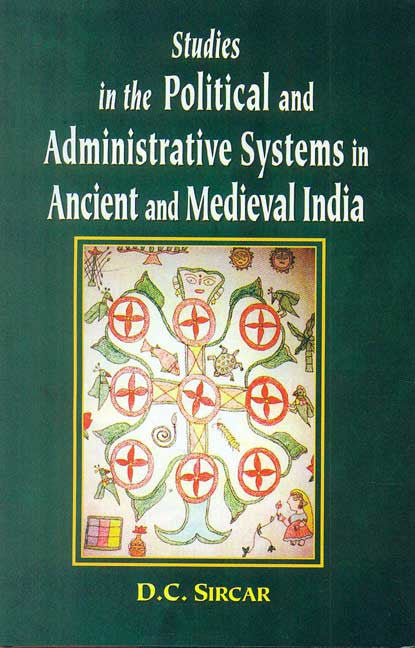Studies in the Political and Administrative Systems in Ancient and Medieval India
Studies in the Political and Administrative Systems in Ancient and Medieval India - Paperback is backordered and will ship as soon as it is back in stock.
Couldn't load pickup availability
The earlier chapters of the present volume deal with a large number of topics relating to kingship, landlordism (sometimes mistaken as feudalism), tenancy, royal, charter, Pancayat system etc. Some of the following chapters contain discussions on certain royal officers the functions of some of them or their departments a few aspects of the judicial system some land measures and taxes etc. The third group of topics mostly concerns the interpretation of technical expressions found in epigraphical records.
The last section of the work consists of several appendices which are really some of the author's recently published studies. Of these, one deals with the democratic traditions of ancient Indian and another with the functioning of the guilds, while a third contains a number of popular conceptions about the duties of Kings. The Subject of the last of the appendices is the traders privileges guaranteed by kings, which has been included here as a topic relating to kingship, though it is equally suitable for a study of economic life.
It will be seen that the book contains the learned author's views on a great variety of matter respecting the political and administrative systems of ancient and medieval India. The treatment of the majority of topics is primarily based on information gathered from innumerable epigraphic records discovered in various parts of India and is characterised by an unusual mastery of details.
Review(s)
About the Author(s)
D. C. Sircar (1907-1984) was an epigraphist, historian, numismatist and folklorist, known particularly for his work deciphering inscriptions in India and Bangladesh. He was the Chief Epigraphist, Archaeological Survey of India (1949-1962); Carmichael Professor of Ancient Indian History and Culture, University of Calcutta, (1962-1972) and the General President of the Indian History Congress. In 1972, Sircar was awarded the Sir William Jones Memorial Plaque.
-
Pages
-
Edition
-
Size
-
Condition
-
Language
-
Weight (kg)
-
Publication Year
-
Country of Origin
-
Territorial Rights
-
Reading Age
-
HSN Code
-
Publisher




